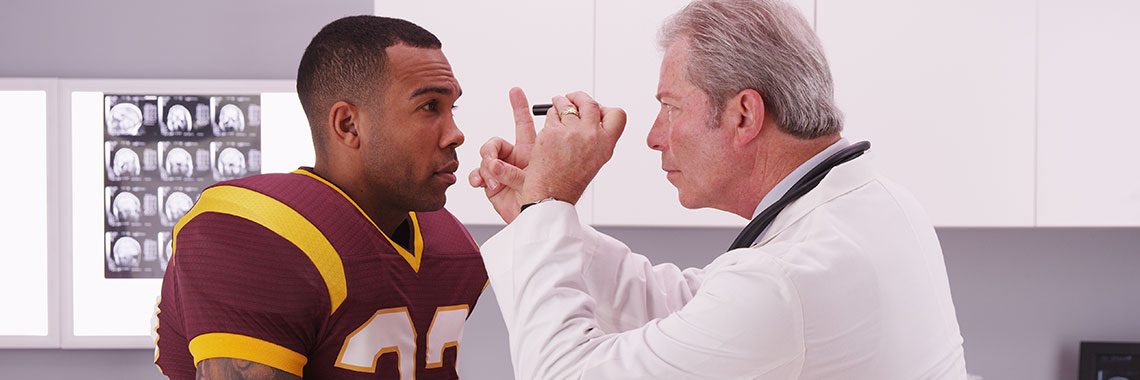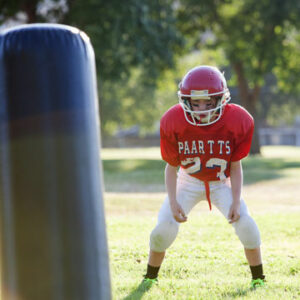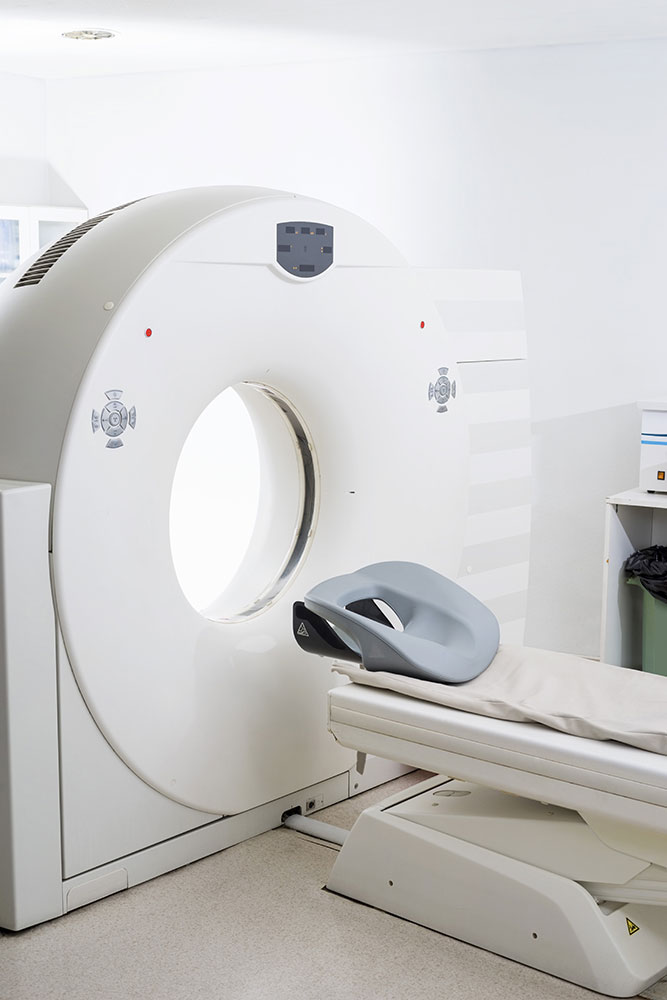
With football season in full-swing, concussions and head injuries are in the front of a lot of parents’ and coaches’ minds. With advances in protective gear along with increased awareness and legislation surrounding the need to remove injured athletes from play, athletes are being kept safer. But when should a parent worry?
Will there be long-term consequences after a head injury? When is a CT scan necessary? How long will the athlete need to be removed from play? These questions will all be addressed in this month’s blog.
When Should A Parent Worry?
Advances in imaging, as well as long-term outcome studies, are starting to shed light on the cellular processes that are disrupted after head injury. This has led to abandoning concussion grading scores.

Instead, any blunt trauma to the head in the setting of ANY symptom – including headache, nausea, mood changes, sleep disturbance, trouble concentrating, light sensitivity, and loss of consciousness – indicates disruption of brain cell processes. In other words, a concussion has occurred after a head injury with ANY subsequent symptoms.
Now for the good news! It is thought that if concussions are managed well, a full recovery can be expected. And the key to treatment is simple – resting the brain from both physical activity and cognitive activities. An interesting long-term study suggests that should the first concussion be managed appropriately, and an athlete does not sustain another concussion within a year, then there is no risk increased for long-term neurologic damage; in other words, the slate is “wiped clean”.
How Is A Concussion Best Managed?
In up to 90% of cases, a concussion will resolve on its own within 1-3 weeks. Just like a knee or ankle injury, the only mistake would be to return to play too soon, to not give the recovering brain enough time to fully heal.
The key to management then is to remove an athlete from play, at a minimum until symptoms have completely resolved. A gradual return-to-play strategy, with a progressive increase in exertion and contact, is the safest way to then return to the game. The key to this strategy is to stop as soon as any symptoms return, to resume the step-wise increase exertion once symptom-free again.
Your child’s coach or athletic trainer will be very familiar with this strategy. (Here’s a nice diagram as a reference: https://www.concussiontreatment.com/images/SCI_RTP_Illustration.pdf ) If concussion symptoms are lasting beyond three weeks, it is time to see a pediatric neurologist or concussion management specialist. There are some fascinating developments which suggest that prolonged recovery from concussions may take one of several “trajectories”, each of which responds to targeted therapy.
When Is A CT Scan Of The Head Needed?

There is growing concern that the ionizing radiation from a CT scan may trigger the development of cancer many years later, with younger patients being more vulnerable due to a “cumulative” lifetime radiation exposure risk. One estimate suggests that for every 5,000 CT scans of the brain, one case of cancer will develop.
At the same time though, we would never want to miss a life-threatening brain bleed. We must, therefore, weigh the risks and benefits of imaging carefully. A national research network of pediatric hospitals called PECARN published a study which addresses this very important issue.
It was found that if a child LACKED high-risk features (including loss of consciousness, vomiting, and altered mental status) then a clinically important finding on the CT scan was always absent. Or in other words, the ER physician will be able to safely omit brain imaging in certain cases based on features of the history and physical exam.
In Conclusion
Concussion after traumatic brain injury is common with definite pitfalls in diagnosis, imaging strategies, and management.
At Elitecare Emergency Hospital, our doctors are very comfortable guiding your injured athlete through evaluation, brain imaging when needed with onsite CT scanning, and neurocognitive testing using ImPact when indicated. We also can provide school and athletics release notes and will follow your injured athlete weekly until cleared to return, safely getting your athlete back in the game!





